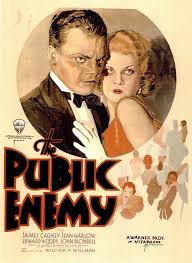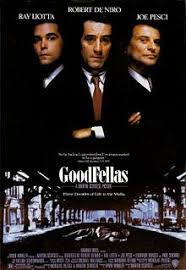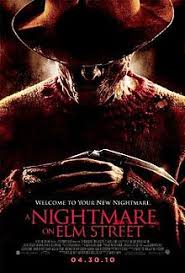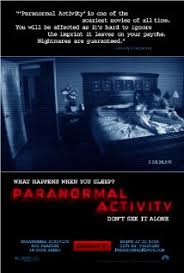Whilst planning the construction of our film trailer, we discovered several problems which we may encounter in the future. To ensure these issues were eliminated as quickly as possible, we organised a brainstorming session to create potential solutions. Overall we were able to produce a practical solution for every problem that may occur in future creative processes, and below is a photograph of said list.
A media blog following our progression from research to finished product in the production of a teaser trailer for the film "Arcane". Created by Sarah Reynolds, Jessica Leeson and Jessica Melling. Follow us on Twitter... @ArcaneA2Media Like us on Facebook... www.facebook.com/arcanemediastudies
Thursday, 27 September 2012
Wednesday, 26 September 2012
Codes and Conventions of a Teaser Trailer
After looking at Genre, one of the first things we realised we need to do is to discover the codes and conventions of the very thing we'd be creating. We started out by brainstorming our ideas on what we generally saw in a trailer. It was clear we would need to watch some to further this knowledge, so we watched the likes of Batman, as seen here, The Bourne Identity (here), Collateral (here) and more. This led us to creating the following table, which compares the codes and conventions of a teaser trailer to those of a theatrical trailer.
We will need to continue to consider these codes and conventions in the production of our own teaser trailer to make it the best it can be.
Teaser Trailer
|
Theatrical Trailer
|
Trying to get people interested
|
More information about the film
|
Leaves an air of mystery
|
Voiceover is about the film itself
|
Voiceovers is speech from a part of the film
|
More clips from the film
|
Shorter than Theatrical
|
Usually shown just before the film is released
|
Usually start with an establishing shot
|
Give a lot more information
|
Build up hype
|
Reviews and major details
|
The shots are usually much shorter and
faster
|
|
Create interest
|
|
Long lead time
|
|
“Coming soon”, “2013” – vague
|
|
Can use symbolism
|
|
Do not need footage from the film
|
 |
| Iconic image from the Batman teaser trailer |
 |
| "Coming Soon" - vague release dates are well known in teaser trailers |
Key Genre Exploration
Researching genres is an important aspect of creating our Teaser Trailer. We looked at all the key genres and bullet-pointed the main aspects of each, as well as film examples.
Action:
- High energy, big budget, physical stunts and chases, rescues, battles, fights, destruction
- Film examples - James Bond, Karate Kid and Die Hard



Adventure:
- Exciting stories, new experiences, exotic locations, searches, expeditions
- Film examples - Pirates of the Caribbean and Zorro


Comedy:
- Light-hearted plots, one liners, exaggeration, slapstick, spoofs, romantic comedies, black comedy
- Film examples - Police Academy, Four Weddings and a Funeral and Monty Python



Crime (& Gangster):
- Sinister actions, outside the law, violence, mystery
- Film examples - The Godfather, The Public Enemy and Goodfellas



Drama:
- Serious, intense, life situations, reality, plot-driven
- Film examples - Slumdog Millionaire, Brokeback Mountain and Forrest Gump



Horror:
- Shocking, cathartic, sub genres such as supernatural and science fiction
- Film examples - Dracula, A Nightmare on Elm Street and Paranormal Activity



Thriller:
-Split into sub genres such as Action and Psychological
Action:
- Chases, suspense, mystery e.g. Die Hard

Psychological:
- Focus on unstable emotional states of characters, mystery, drama e.g. Se7en

Conspiracy:
- Scandal, mysteries to unravel, chases e.g. Enemy of the State

Science Fiction:
-Imaginative, aliens, extra-terrestrial, planets, quests, futuristic
-Film examples - Cocoon, Alien and Star Trek



War:
-Horror & heartbreak, paired with other genres
-Film examples - Saving Private Ryan, Schindler's List and Atonement



We have ultimately decided to explore the Thriller genre further, and base our teaser trailer on this.
Action:
- High energy, big budget, physical stunts and chases, rescues, battles, fights, destruction
- Film examples - James Bond, Karate Kid and Die Hard
Adventure:
- Exciting stories, new experiences, exotic locations, searches, expeditions
- Film examples - Pirates of the Caribbean and Zorro
Comedy:
- Light-hearted plots, one liners, exaggeration, slapstick, spoofs, romantic comedies, black comedy
- Film examples - Police Academy, Four Weddings and a Funeral and Monty Python
Crime (& Gangster):
- Sinister actions, outside the law, violence, mystery
- Film examples - The Godfather, The Public Enemy and Goodfellas
Drama:
- Serious, intense, life situations, reality, plot-driven
- Film examples - Slumdog Millionaire, Brokeback Mountain and Forrest Gump
Horror:
- Shocking, cathartic, sub genres such as supernatural and science fiction
- Film examples - Dracula, A Nightmare on Elm Street and Paranormal Activity
Thriller:
-Split into sub genres such as Action and Psychological
Action:
- Chases, suspense, mystery e.g. Die Hard
Psychological:
- Focus on unstable emotional states of characters, mystery, drama e.g. Se7en
Conspiracy:
- Scandal, mysteries to unravel, chases e.g. Enemy of the State
Science Fiction:
-Imaginative, aliens, extra-terrestrial, planets, quests, futuristic
-Film examples - Cocoon, Alien and Star Trek
War:
-Horror & heartbreak, paired with other genres
-Film examples - Saving Private Ryan, Schindler's List and Atonement
We have ultimately decided to explore the Thriller genre further, and base our teaser trailer on this.
Welcome! (:
Welcome to our Year 13 Media blog, where we will be informing you of our process in making our upcoming film teaser trailer, Arcane.
Subscribe to:
Comments (Atom)

